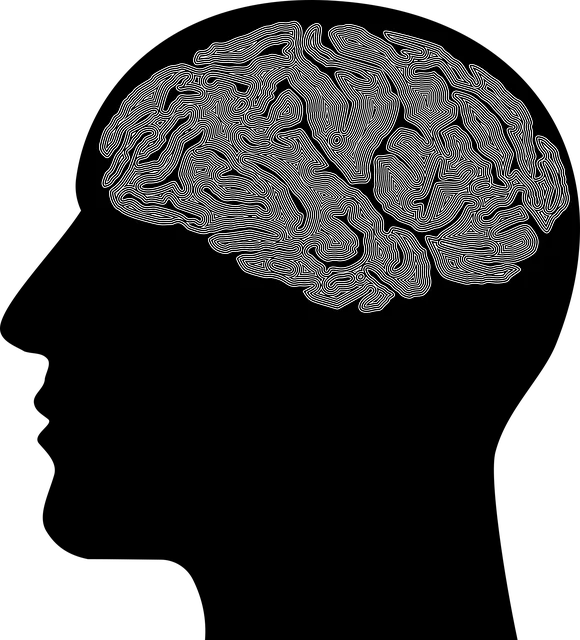In a world where mental wellness is paramount but access to care is hindered by stigma, Self-Assessment Tools (SATs) empower individuals to manage their mental health proactively. Superior Kaiser Permanente mental health providers are at the forefront of this movement, utilizing innovative strategies like Mental Wellness Coaching Programs and evidence-based policies. Their SATs focus on emotional well-being, stress management, self-care practices, and risk factors, enabling personalized interventions. These user-friendly digital tools break down barriers, foster self-awareness, reduce stigma, and promote proactive mental health management, revolutionizing individual emotional well-being monitoring. Integrating these tools into clinical practice enhances patient engagement and treatment outcomes, aligning with community goals to build resilience against life's challenges.
In today’s fast-paced world, self-assessment tools play a crucial role in empowering individuals to take charge of their mental wellness. This article explores the development of these tools, focusing on the innovative approach by Kaiser Permanente to enhance mental healthcare. We delve into key components for effective assessments and the creation of user-friendly platforms, ensuring accessibility. Additionally, we examine strategies to integrate self-assessment into clinical practice, highlighting benefits for both mental health providers and patients alike, with a particular emphasis on Kaiser Permanente’s superior practices.
- Understanding the Need for Self-Assessment Tools in Mental Health Care
- Kaiser Permanente's Approach to Enhancing Mental Wellness Assessments
- Key Components of an Effective Mental Health Self-Assessment
- Developing User-Friendly Platforms for Accessible Mental Wellness Monitoring
- Integrating Self-Assessment into Clinical Practice: Strategies and Benefits
Understanding the Need for Self-Assessment Tools in Mental Health Care

In today’s fast-paced world, mental wellness is a cornerstone of overall health and well-being. However, recognizing and addressing mental health issues often involves significant barriers, including stigma, lack of access to quality care, and limited self-assessment tools. This is where Self-Assessment Tools (SATs) come into play, playing a pivotal role in empowering individuals to take charge of their mental wellness. SATs provide a means for people to gain valuable insights into their emotional states, thought patterns, and behaviors, thereby facilitating proactive management of stress, anxiety, and other common mental health concerns.
The need for effective SATs is especially pertinent when considering the vast array of challenges faced by individuals seeking mental health support. For instance, Superior Kaiser Permanente mental health providers have reported a growing demand for accessible and user-friendly tools that can be easily integrated into routine care. Tools designed to promote inner strength development and stress management workshops organization can significantly contribute to this effort. By equipping individuals with the ability to self-monitor and self-regulate, SATs not only alleviate symptoms of anxiety relief but also foster a sense of agency and resilience, ultimately enhancing overall mental wellness.
Kaiser Permanente's Approach to Enhancing Mental Wellness Assessments

Kaiser Permanente has established itself as a leader in mental health care, implementing innovative strategies to enhance patient assessments and overall wellness. Their approach prioritizes not just clinical expertise but also fosters a culture of empathy and support among mental health providers. By integrating Empathy Building Strategies, the organization ensures that patients receive care that is not only professional but also deeply understanding and personalized.
The development of Mental Wellness Coaching Programs has been a pivotal component of Kaiser Permanente’s strategy. These programs not only equip providers with advanced assessment tools but also foster continuous learning and adaptation. In addition to these initiatives, the organization actively engages in Mental Health Policy Analysis and Advocacy, ensuring that its practices align with the latest research and community needs, ultimately contributing to a more comprehensive and effective mental wellness assessment framework.
Key Components of an Effective Mental Health Self-Assessment

An effective Mental Health Self-Assessment tool should incorporate several key components to ensure it provides a comprehensive and accurate evaluation. Firstly, it must include questions that assess an individual’s emotional well-being, including their ability to manage stress, cope with challenges, and maintain a positive outlook. This is crucial for identifying potential issues like anxiety or depression, which often manifest as subtle changes in mood and behavior. The tool should also delve into self-care practices, such as exercise habits, sleep patterns, and social connections, as these are fundamental factors influencing mental wellness.
Additionally, integrating questions related to risk factors and protective measures is essential. This includes assessing past traumas, substance use, or any other relevant historical information that might impact current mental health. By considering these aspects, the self-assessment can provide insights into areas requiring professional intervention or support. For instance, Superior Kaiser Permanente mental health providers would benefit from such tools to gain a clearer understanding of patients’ overall well-being, enabling them to tailor treatments effectively, focusing on depression prevention and stress management strategies.
Developing User-Friendly Platforms for Accessible Mental Wellness Monitoring

In today’s digital age, accessible mental wellness monitoring tools are transforming the way individuals manage their emotional well-being. Kaiser Permanente, renowned for its superior mental health providers, is at the forefront of this revolution. By developing user-friendly platforms, they aim to break down barriers and make these resources available to a broader audience. Such tools offer a convenient and discrete means for users to track their Mental Wellness and stress management levels, enabling proactive care.
These innovative platforms not only facilitate self-assessment but also serve as valuable resources in Mental Illness Stigma Reduction Efforts. By promoting self-awareness and providing accessible support, they empower individuals to take charge of their mental health journey. With a user-centric design, these tools offer simplicity and anonymity, ensuring people feel comfortable monitoring their emotional well-being regularly.
Integrating Self-Assessment into Clinical Practice: Strategies and Benefits

Integrating self-assessment tools into clinical practice empowers mental health professionals to offer more personalized and effective care. At Kaiser Permanente, renowned for its superior mental health services, providers leverage self-assessment as a powerful strategy to enhance patient engagement and treatment outcomes. By encouraging patients to actively participate in evaluating their emotional well-being, these tools foster a collaborative relationship between provider and patient, ensuring interventions are tailored to individual needs.
Self-assessment can be particularly beneficial for cultivating emotional intelligence – a key component of mental wellness – by promoting self-awareness and reflective thinking among individuals. Additionally, integrating self-assessment into clinical practice aligns with the spirit of community outreach program implementations, encouraging proactive mental health management and fostering resilient individuals equipped to navigate life’s challenges.
The development of mental wellness self-assessment tools is a crucial step towards empowering individuals to take control of their mental health. By adopting innovative approaches, such as those demonstrated by superior Kaiser Permanente mental health providers, we can enhance access to care and improve outcomes. Integrating user-friendly platforms into clinical practice allows for timely intervention and supports the holistic monitoring of mental wellness. With effective self-assessment tools, individuals can navigate their emotional well-being with increased awareness and resilience, ultimately fostering a healthier and more supportive environment.






